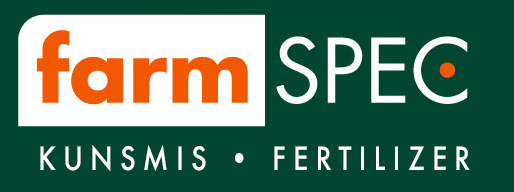farmSPEC
farmSPEC remains in the forefront of product development in the plant nutrition and soil fertility business with its range of highly sought after coating and beneficiated raw material products. Supplying Manufactures and Blenders globally has catapulted farmSPEC as a leader in natural raw material additives and coatings capable of converting some of the large commodities such as Urea and MAP into far more efficient versions, thereby saving costs and getting far better results for its clients.

MAP Active (ZnSO4) + 1 OR 2% ZN (ZINC SULPHATE) The most common fertilizer composition is: 11-52-0 (plus
Zinc Sulphate + Carbo-Bond coating agent) A unique concentrated phosphorus, nitrogen and zinc granular fertiliser catalysed with lignosulphonate
to assist in establishment of crops and maintain overall vigour. This product is available as a ‘prescription blend’ with 1 or 2 % zinc (as sulphate) coated to the granules.
MANAGEMENT PRACTICES
There are no special precautions associated with the use of MAP Active (ZnSO4). The slight acidity associated with this fertilizer reduces the potential for NH3 loss to the air. MAP Active (ZnSO4) can be placed in close proximity to germinating seeds without concern for NH3 damage.
COMPATIBILITY
Care should be taken when using MAP Active (ZnSO4) as it should not be allowed to react with calcium or magnesium sources.
STORAGE
Product should be stored in cool dry conditions. MAP Active (ZnSO4) has good storage and handling properties. Some of the chemical impurities (such as iron and aluminium) naturally serve as a conditioner to prevent caking. Highly pure MAP Active (ZnSO4) may have a conditioner added or may require special handling to prevent clumping and caking. As with all Phosphate fertilizers, appropriate management practices should be used to minimise any nutrient loss to surface or drainage water.
ANALYSIS

APPLICATION GUIDE
This granular product may be spread using standard application methods. Granular MAP is often applied in concentrated bands beneath the soil surface in proximity of growing roots or in surface bands. It is also commonly applied by spreading across the field and mixing into the surface soil with tillage.
Benefits
• 40-50% of South African agricultural land is zinc deficient.
• Zinc is one of the main ‘limiting factors’ in crop production.
• This experimental work has been extensively documented and the cost efficiency established beyond doubt.
• Phosphate fertiliser has been shown to require minimum levels of zinc to be effective.
• Zinc as zinc sulphate is 100% water soluble and plant available. Zinc oxide and the industrial by product zinc ash (which are often ‘passed off’ as viable zinc sources by phosphate suppliers) are not plant available.
• Map (Active) is specifically made with zinc sulphate to ensure that growers get the benefit of the zinc that they pay for.
• Map (Active) is manufactured with a unique lignosulphonate bonding agent (carbo-bond) which is shown to boost the microbial activity associated with phosphate mobilisation.
• The bonding agent (Carbo-Bond) is an organic product derived from renewable sources.
PRODUCT SPECIFICATIONS
For the first time in South Africa zinc sulphate has been combined in a unique way using a organic bonding agent (Carbo-Bond) with MAP.
Zinc sulphate is shown to be the most agronomically effective way of adding the critical zinc to soils in which zinc levels become depleted. Zinc has been shown to be one of the main and often overlooked soil deficiencies limiting crop production.
The combination of the MAP’s phosphate component with zinc sulphate has important agronomic benefits which are enhanced by the association with lignosulphonate which is associated with the proliferation of phosphate mobilising micro-organisms pseudomonas fluoresens.
MAP has been an important granular fertilizer for many years. It is water soluble and dissolves rapidly in soil if adequate moisture is present. Upon dissolution, the two basic components of the fertilizer separate again to release NH4 and H2PO4. Both of these nutrients are important to sustain healthy plant growth. The pH of the solution surrounding the granule is moderately acidic, making MAP an especially desirable fertiliser in neutral and high pH soils.
